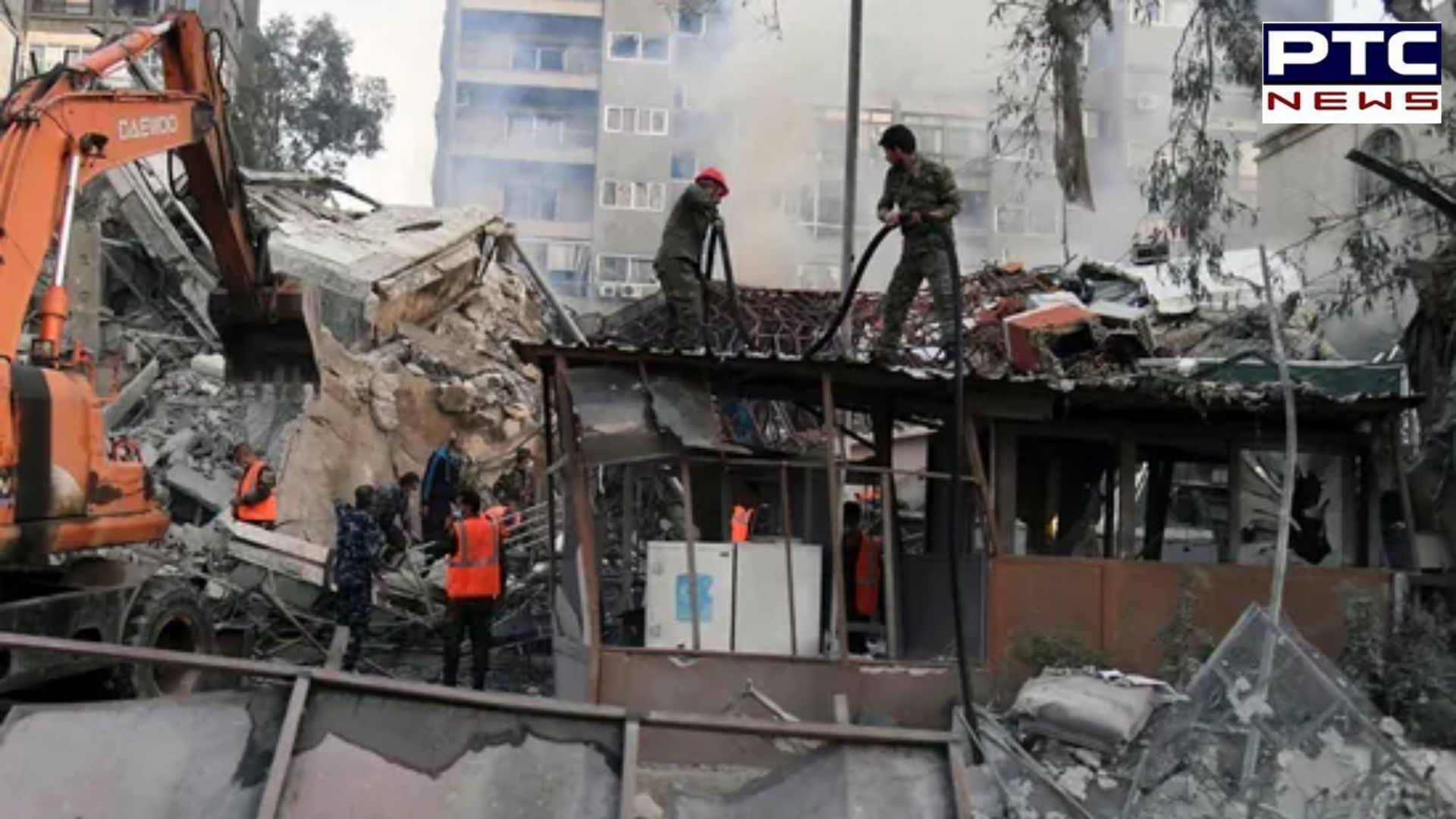

Israeli airstrike on Iranian embassy in Syria results in deaths of 2 generals; Tehran promises 'harsh' retaliation: Key Highlights
PTC News Desk: In a significant and alarming escalation of tensions in the Middle East, an alleged Israeli airstrike targeted and demolished Iran's consulate building in Syria on Monday. The attack, which occurred in Damascus, resulted in the loss of lives, including two Iranian generals and five other officers. The strike has raised concerns over potential repercussions and further destabilisation in the region.
1. Nature of the Attack: Reports indicate that the Israeli airstrike targeted the consulate building belonging to Iran in Syria. The strike is seen as a significant move amid the ongoing tensions between Israel and Iran, both of which have been engaged in regional power struggles and conflicts.
2. Casualties: Among the casualties were two Iranian generals and five additional officers. The loss of high-ranking military personnel underscores the severity of the strike and its potential implications for future developments in the region.
3. Location: The consulate building, situated in Damascus, Syria's capital, was the focal point of the Israeli airstrike. The precise targeting of this diplomatic establishment signals a heightened level of aggression and suggests a strategic intent behind the attack.
4. Israeli Response: As of now, Israel has not officially commented on the airstrike or claimed responsibility for it. The lack of acknowledgment from Israeli authorities adds to the ambiguity surrounding the incident and leaves room for speculation regarding the motivations behind the attack.
5. Drone Strike Incident: Prior to the airstrike on the Iranian consulate, Israel's military spokesperson attributed a drone strike on Monday in southern Israel to Iran. This attribution indicates a tit-for-tat dynamic between the two nations, with each accusing the other of aggressive actions.
6. Escalating Tensions: The airstrike marks a significant escalation in the ongoing tensions between Israel and Iran. Both nations have been engaged in a protracted struggle for influence in the region, with Syria serving as a battleground for their geopolitical ambitions.
7. Iran's Reaction: In response to the airstrike, Iran has vowed to deliver a "harsh" response. The statement reflects Tehran's determination to retaliate against what it perceives as acts of aggression by Israel.
Also Read: PM Modi criticises Congress for surrendering Katchatheevu Island to Sri Lanka
Also Read: Indian Navy's bold Red Sea missions: Confronting pirates in the Arabian waters
8. Diplomatic Implications: The targeting of a diplomatic establishment raises questions about the adherence to international norms and conventions governing diplomatic relations. The attack could strain diplomatic ties between Iran and Syria, as well as broader implications for regional diplomacy.
9. Security Concerns: The airstrike underscores the precarious security situation in the Middle East, with the potential for further escalation and conflict. The incident heightens concerns about the possibility of a broader regional confrontation involving multiple stakeholders.
10. International Response: The international community is closely monitoring the situation, with concerns over the destabilizing effects of the airstrike on an already volatile region. Calls for restraint and diplomatic resolution are likely to increase as tensions between Israel and Iran continue to escalate.
In conclusion, the Israeli airstrike on the Iranian consulate building in Syria has raised serious concerns about the potential for further escalation and conflict in the region. The loss of lives, including high-ranking Iranian military personnel, underscores the gravity of the situation and the need for diplomatic efforts to de-escalate tensions and prevent further violence.
Also Read: Amit Shah criticises Jawaharlal Nehru, alleges 'blunder' in Jammu and Kashmir
Also Read: Vistara faces deeper pilot crisis, dozens of flights cancelled nationwide
(Inputs from agencies)
-
